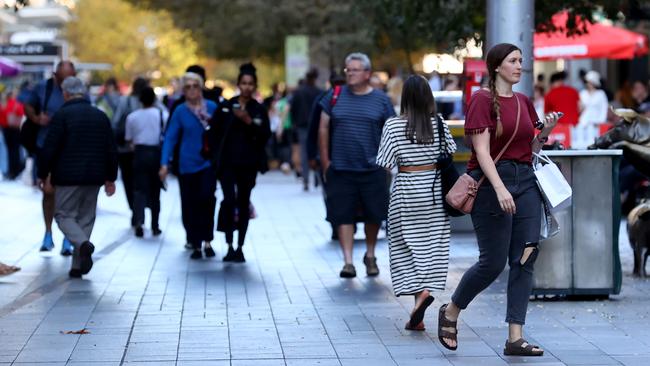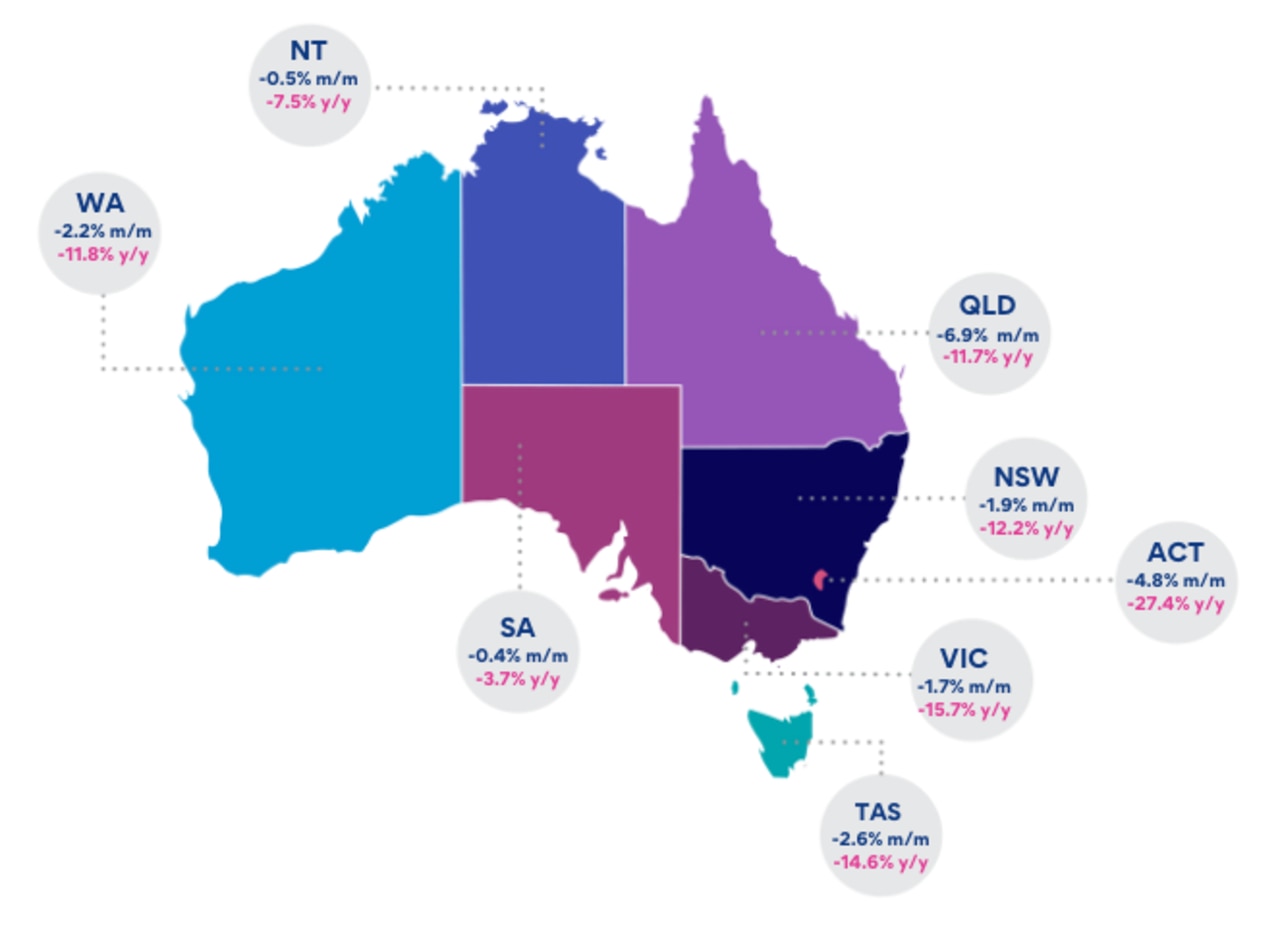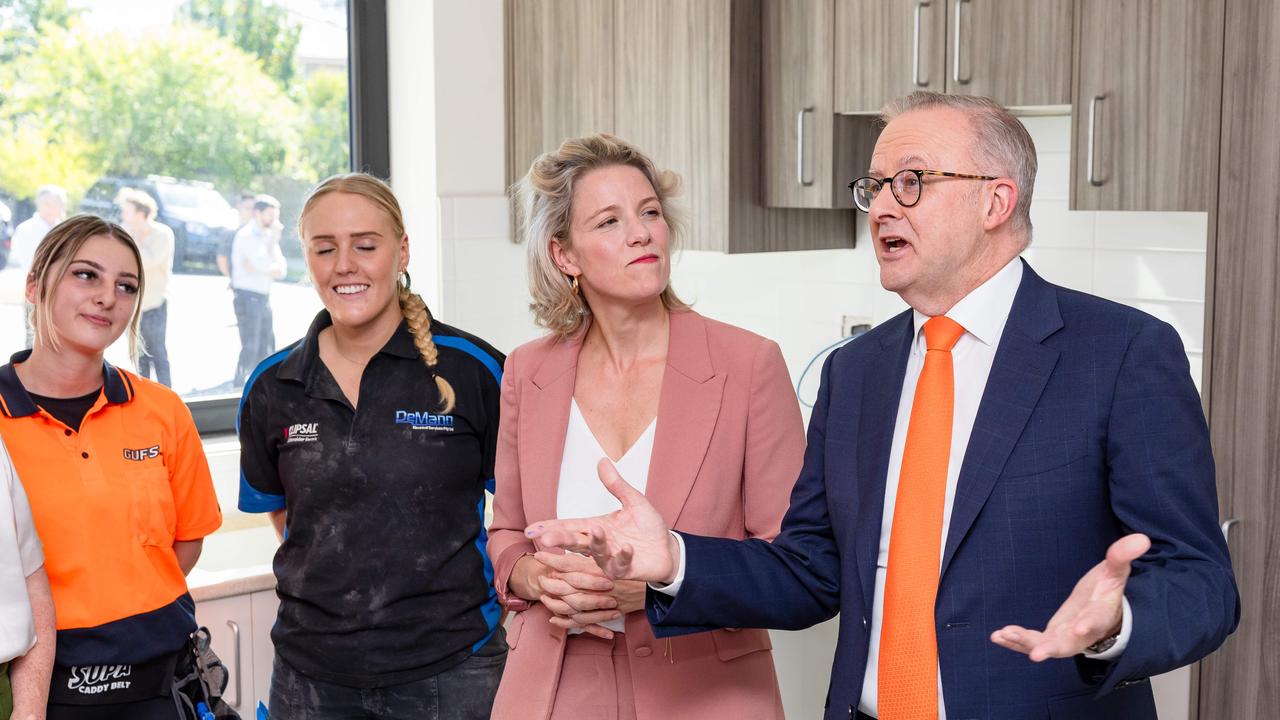Half of Australians expect a rate hike in coming year
Growing worries about the outlook for inflation, the economy and interest rates are underpinning ‘deep pessimism’ among Australian households, despite the imminent arrival of tax cuts and energy bill relief.

Growing worries about the outlook for inflation, the economy and interest rates are underpinning “deep pessimism” among Australian households, despite the imminent arrival of tax cuts and governments’ energy bill relief measures.
Westpac’s latest monthly survey revealed any meaningful improvement in consumer confidence was “dashed” following the Reserve Bank’s meeting last week, after governor Michele Bullock declared “we need a lot to go our way” to bring inflation back under control without having to hike interest rates again.
The June consumer sentiment report showed about half of all households expect interest rates to rise in the coming 12 months, a prospect that blunted enthusiasm over the start of tax cuts from next week and upcoming commonwealth and state power bill subsidies.
The latest insight into the gloomy mood among Australians amid still-intense cost-of-living pressures comes ahead of Wednesday’s monthly consumer price report, which is expected to show inflation in the year to May rose to 3.8 per cent from 3.6 per cent.
Annual inflation on the more volatile monthly measure has trended higher through 2024 after falling to 3.4 per cent in December – a key concern for the RBA, which has put rate hikes back on the board’s agenda.
Financial markets are pricing in a one-in-five chance of a hike at the next central bank board meeting in early August, although that would be predicated on the risk of a hotter than anticipated June quarter inflation report, due at the end of July.
Analysts at UBS recently put the chance of a 14th rate hike in August at more like 40 per cent.
Westpac senior economist Matthew Hassan said “the survey detail suggests positives from fiscal support measures are being negated by increased concerns about inflation and the outlook for interest rates”.
There were more negative than positive views on what was in the news across all 15 categories canvassed in the survey – and there has not been a “net positive” view for 2½ years, or the longest run of negative news sentiment since the survey began in the mid-1970s.
Mr Hassan said in June the topics of “budget and tax” and “inflation” were front of mind for households, with nearly half recalling news on each.
“On the former, the news was viewed as less unfavourable than in March, reflecting the well-received commonwealth budget, the cost-of-living measures delivered by both federal and state governments, and the stage 3 tax cuts set to commence on July 1,” he said.
“The news on inflation was viewed as less favourable than in March, with assessments retracing most of the way back to the levels seen in December, when the RBA had raised the cash rate in response to persistently high inflation.”
The first of the federal government’s four $75 energy bill rebates will arrive for every household nationally in the September quarter. Every Queenslander will get an extra $1000 power bill subsidy, and all West Australians the first of two quarterly $200 reductions.
ANZ economists predict these cost-of-living measures will slash 0.7 percentage points off headline inflation through the three months to September – likely pushing price growth back within the RBA’s 2-3 per cent target range.




To join the conversation, please log in. Don't have an account? Register
Join the conversation, you are commenting as Logout